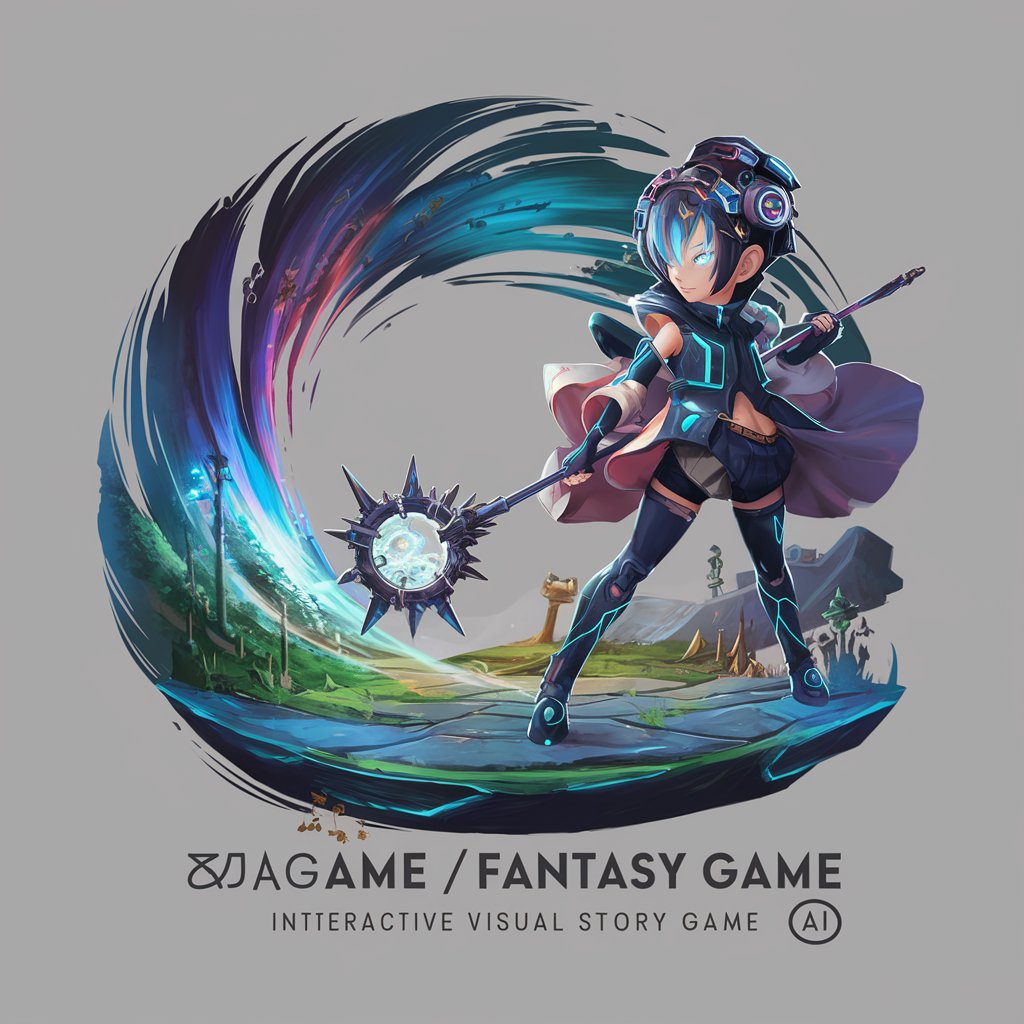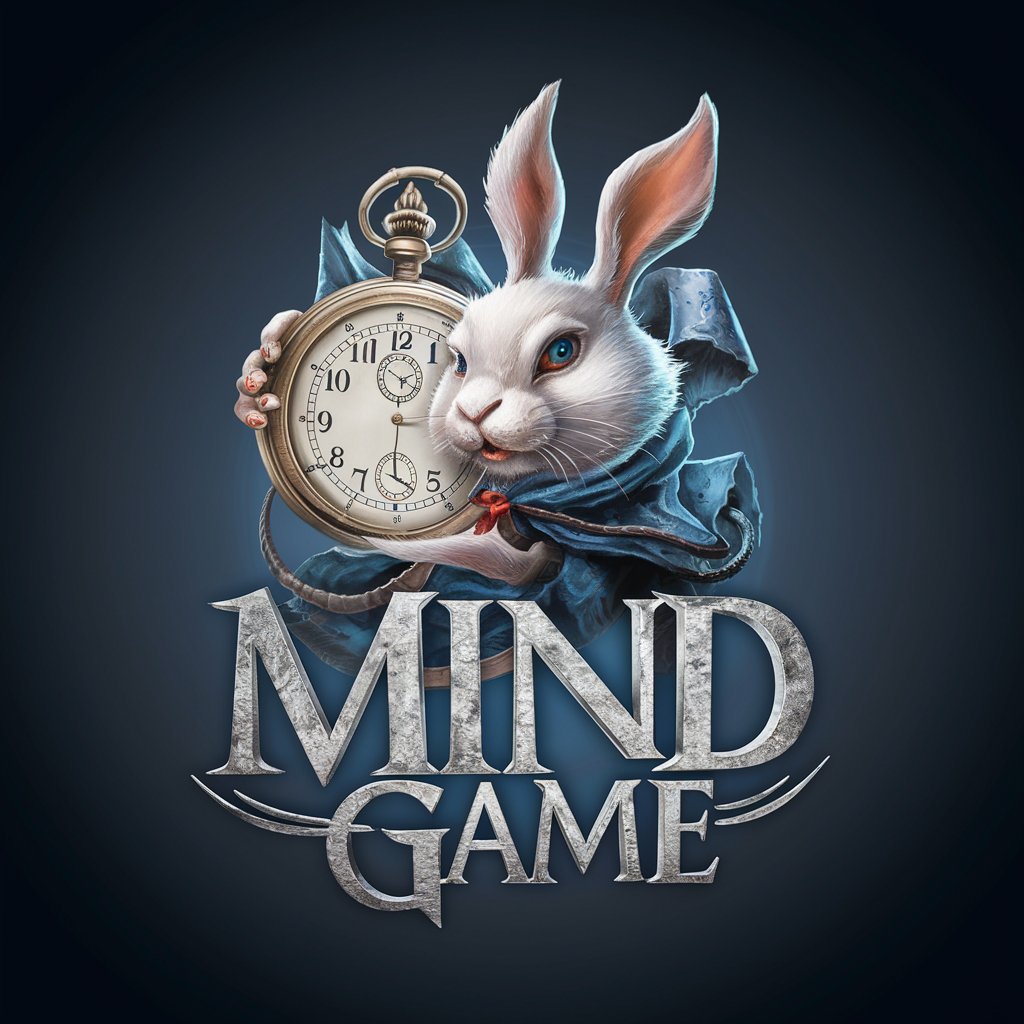
Imaginary Games - Interactive Story Adventure

Welcome to DeepGame, where your choices shape the story.
Craft Your Story, Visualize Your Adventure
You find yourself at the entrance of a mysterious ancient temple, shrouded in mist. What do you do next?
As a detective in the bustling city, you receive an anonymous tip about a hidden clue. What do you do next?
Standing on the battlefield, you see an ally in danger and an enemy advancing. What do you do next?
In the heart of a magical forest, you discover a glowing portal. What do you do next?
Get Embed Code
Overview of Imaginary Games
Imaginary Games is an AI-driven platform designed to immerse users in interactive visual story games across a variety of genres, including fantasy, historical, detective, war, adventure, romance, and more. At its core, the system uses advanced AI to generate vivid images and narrative elements, positioning users in an active role within the story. Users guide the storyline by making choices, and the AI dynamically generates images and narrative consequences based on these decisions, creating a personalized and evolving storyline. For example, in a fantasy setting, a user might choose to confront a dragon, leading to an AI-generated scene of the ensuing battle, complete with dialogue and potential outcomes. Powered by ChatGPT-4o。

Key Functions of Imaginary Games
Dynamic Story Generation
Example
In a detective story, the user's decision to investigate a suspicious character leads to the discovery of new clues, dynamically altering the story's direction.
Scenario
This function is applied as the user interacts with the story, making choices that the AI uses to generate new narrative paths and images, keeping the story fresh and engaging.
Genre-Specific World Building
Example
For a historical adventure, the AI creates an accurate depiction of ancient Rome, complete with historical figures, landmarks, and societal norms.
Scenario
This ensures that the setting and narrative elements are immersive and genre-appropriate, enhancing the user's experience by grounding their actions in a well-crafted world.
Interactive Dialogue and Character Development
Example
In a romance story, the user's interactions with other characters affect relationship dynamics, leading to various romantic outcomes.
Scenario
Dialogue choices influence character relationships and plot developments, providing a deep level of interaction and personalization.
Target Audience for Imaginary Games
Storytelling Enthusiasts
Individuals who enjoy crafting and experiencing unique narratives will find the platform's dynamic story generation and immersive worlds appealing for creating and living through their own stories.
Gamers Seeking Personalized Experiences
Gamers who prefer narrative-driven games and the ability to influence the story directly will appreciate the personalized and evolving storylines that adapt to their choices.
Creative Writers and Educators
Writers seeking inspiration and educators looking for engaging ways to teach narrative structure, character development, and creative writing will benefit from the platform's capabilities to generate diverse and interactive stories.

How to Use Imaginary Games
1
Visit yeschat.ai for a free trial without login, also no need for ChatGPT Plus.
2
Select your preferred story genre (e.g., fantasy, historical, detective) to initiate your interactive visual story game.
3
Engage with the narrative by responding to 'What do you do next?' prompts, guiding the story's direction.
4
View generated images that visually depict the consequences of your actions within the game.
5
Continue interacting with the evolving story, using your responses to shape the narrative and experience different outcomes.
Try other advanced and practical GPTs
StoryOne Booktitle Creator
Crafting Memorable Titles with AI

Grundstück schätzen lassen
Estimating property value with AI precision

Lucas Luxe : Growth Hacker
Empower Your Growth with AI-Driven Marketing Strategies

Prompt Page Statique
Empowering your words with AI.

Halloween
Unleash Spooky Creativity with AI

Ghost Stories
Crafting Your Personalized Haunts

Holodeck GPT
Bring Stories to Life with AI

Chronicle Writer
Empowering Words with AI

DiSC Insight Generator
Empower Teams with AI-Driven Insights

Créateur de Quiz sur le Droit Français
AI-powered French law quiz maker

Auto Finance Gpt
Empowering your car finance decisions with AI

Insightful Psychologist
Empowering emotional and psychological well-being through AI

Frequently Asked Questions about Imaginary Games
What types of genres does Imaginary Games support?
Imaginary Games supports a wide range of story genres, including fantasy, historical, detective, war, adventure, and romance.
How does user interaction influence the story in Imaginary Games?
Users guide the story by responding to prompts, with their choices directly influencing the narrative and its visual representations.
Can I replay the same story in Imaginary Games with different outcomes?
Yes, you can replay stories, making different choices to experience various outcomes and narrative paths.
Is Imaginary Games suitable for all ages?
Imaginary Games caters to a broad audience, but the suitability of specific story content may vary based on genre and narrative choices.
How are the visuals in Imaginary Games generated?
The visuals are AI-generated, dynamically created in response to user choices and narrative progression.





